Ask Our Experts 1/19/2019


Ask Our Experts: Cannabis and CBD a Passing Fad?
By J.J. McCoy, Senior Managing Editor, New Frontier Data
Q: Realizing how popular cannabis and CBD have become whether on Hollywood runways or retail shelves, what makes you think that they are not just passing fads like so many diets or workouts?
A: First off, of course, is that unlike the keto – or even paleo – diet or Pilates, humans have been using cannabis for millennia (e.g., being written about in China during 2727 BCE). So, there is no reason to think that it is going away anytime soon.
In fact, the evidence is leaning quite the opposite, according to recent activity. Using just last weekend as an example, Mother’s Day again proved itself with stronger sales than usual, with the unofficial holiday reminding us that it is becoming an increasingly popular time for flowers, phone calls, brunch – and cannabis.
With brisk sales expected on the preceding Friday and Mother’s Day itself, the most popular products this year included edibles (e.g., chocolates, hot cocoa, tea, coffee, and drops) and CBD- and THC-infused personal care products (e.g., lotions, bath salts, and scrubs).
In fact, as analyzed in New Frontier Data’s recent report, Cannabis Consumer Report: Archetypes, Preferences & Trends, mothers in general are among the most dedicated of cannabis consumers.
When described among the report’s nine defined social archetypes, older mothers of adult children fall under the category of Discreet Unwinders. As a group, Discreet Unwinders generally include white women with adult children. Most are between 45-65 years old, and nearly half (47%) of them first used cannabis before the age of 18, which (considering their average age of 57) gives them a longer history with cannabis than many other consumers.
Nonetheless, whether due to lifestyle circumstances, or societal disapproval of mothers consuming cannabis, Discreet Unwinders are typically uncomfortable making their cannabis use public, even though tend to drink less alcohol and less frequently than other archetypes, and do not tend to mix cannabis and alcohol. Though friends are their primary source of cannabis, Discreet Unwinders are less likely than other archetypes to say their friends know about their use. As a result, they generally use cannabis alone, to relax and regroup, such as by watching TV or doing chores around the house.
It’s been more than half a century since The Rolling Stones first sang about “Mother’s Little Helper” – so long, in fact, that most people are not familiar with the actual drug they described – but research proves that mothers as a demographic group are still regularly seeking occasional relief, and embracing cannabis into their lifestyles.
Discreet Unwinders believe strongly in the health benefits of cannabis, and are among the most likely to use cannabis for pain management. They prefer the traditional product forms: joints and pipes over value-added products.
Skewing slightly younger (often in their early 40s), Weekend Enthusiasts are primarily parents with a spouse or partner (and children under age 18 living at home) who consume relatively often to decompress and enjoy their free time. Weekend Enthusiasts generally work full-time, and many have annual household incomes between $60,000-$120,000. They occasionally consume cannabis and alcohol together.
They have favorite go-to strains but like to try new ones, too. Weekend Enthusiasts prefer smoking over other forms of consumption, with their favorite products being joints and pipes, with some enjoying their flower enhanced with added concentrates.
The youngest of the most mother-involved archetypes are the Modern Lifestylers. Young and employed with high incomes – thus the cannabis industry’s ideal and high-spending vision of the future – Modern Lifestylers primarily live in adult-use markets, and are leading the American transition toward the legal market. They use cannabis for a broad range of reasons (from general wellness and decompression to socialization and recreation), and for medical reasons when needed.
Toward that end, it is important to note that psychiatrists and physicians are generally hesitant to recommend cannabis products to breastfeeding mothers, due to lack of research. Accordingly, the American College of Obstetricians and Gynecologists discourages the use of cannabis while pregnant or breastfeeding, due to insufficient data.
While some studies have linked cannabis exposure via breast milk or in utero to possible long-term changes in the child’s mental health and behavior, the InfantRiskCenter, affiliated with Texas Tech University, is conducting research into it. While CBD does not have the same effects as THC, too much remains undetermined about it, too, and how products relate to breastfeeding.
That noted, however, and regardless of whatever demographic subset they best relate to, there are mothers definitely embracing the legal cannabis industry, through various market segments.
As journalist Jessica Delfino was quoted in The Atlantic: “I think cannabis use in moms is becoming more widespread because it’s becoming more legal, and so people feel more willing and able to discuss it.”
Given that moms from Martha Stewart to Kim Kardashian are singing praises about cannabis, acceptance is definitely becoming mainstream – reminding us how mothers still know best.


